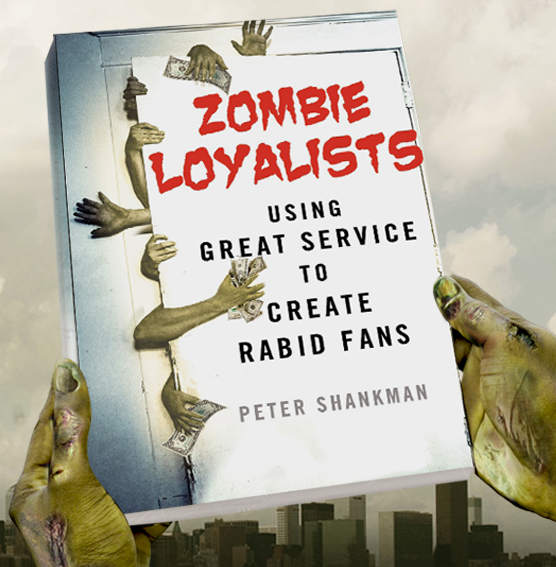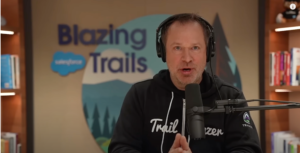Guest Post by Peter Shankman, Author of Zombie Loyalists: Using Great Service to Create Rabid Fans
Imagine a world where decisions aren’t made based on anonymous reviews with no validation on sites like Yelp or TripAdvisor, but rather, through trusted sources in your own network.
Imagine that world is automatic – If you want to take a vacation in Fiji, you don’t have to ask which of your friends have gone, you simply start searching for Fiji – on any network, on any of the major “social” sites, and the posts, photos, videos, and comments of your friends who’ve visited Fiji come up automatically, sorted not only from good to bad, but “most trusted” to “least trusted,” depending on your interaction with that person in your network.
Imagine that this applies from everything in your life – from the diner at which you eat Sunday brunch, the airline to which you become loyal, the pet-spa to which you entrust Fluffy to get her summer coat.
Brian Solis said it before, countless times. In this new economy, the differentiating factor, that above all else, will be the concept of trust. If we have a good experience with a vendor/merchant/restaurant/business/service, and we appreciate what that business did for us, the sentiment of our interaction will be posted automatically, sometimes even without us doing anything.
Think about this: If I have a favorite Mexican restaurant on 49th Street, and I go there frequently, well, who knows that? My phone knows where I am, based on GPS and how long I’m there, as it pings my location to cell towers close to me. Thus, Facebook, Google+, they all know, too.
If you’re in my network, and we’ve connected in the past, then when you’re geographically close to me, and go searching for a Mexican restaurant, guess which one is going to come up first in your list? It’s already happening on Google Maps, while Facebook knows with whom you want to connect before you do when you land in a new city.
So what’s a business to do? If Yelp doesn’t matter (did it ever?) and advertising and marketing doesn’t have anywhere near the hold that a trusted recommendation does, what will save the business of today and long into tomorrow?
Customer Service.
Nothing else. The economy of the next fifty years will be powered by Customer Service. Why? Because in the very near future, only the sentiment of a customer’s interaction with you will determine whether that customer brings in new ones, or lets your business die.
I’ve spent the past year researching customer service around the world, and have discovered some amazing facts:
88% of all businesses believe that they deliver “top-notch” customer service. Unfortunately, only 8% of their customers believe the same thing.
The average amount of money a company loses after an unresolved bad customer service interaction is $289. That adds up to $83 BILLION dollars per year in this country alone.
Those numbers should scare you more than any Zombie Movie should.
But it doesn’t have to be that way. All the research that I did for my latest book, Zombie Loyalists, shows that good customer service – heck, just one level above crap – is enough to get a customer to come back, because the bar is set that low! Create something out of the ordinary, whether it’s a smile, a discount, or a free drink, and you’ll create Zombie Loyalists, customers who will go out of their way to drag their friends back to your business with them, every. Single. Time.
And that, my friends, is real revenue for the next century and beyond.
Peter Shankman is best known for founding Help a Reporter Out, which changed how journalists and sources interact around the world. Zombie Loyalists is his fourth book, and is the follow-up to his best-seller, Nice Companies Finish First. He blogs at Shankman.com, and tweets random hilarity at @petershankman






I have always felt weird about accepting a stranger’s view on a product – they don’t know my taste or my needs, but at the same time if a product or service is getting consistently bad reviews then I feel like it does say something!
Which is why there is no way Sprint will last much longer. I’ve heard their headquarters are even a target of ISIS since their employees are such incompetent..well…
This is interesting that so few businesses are able to achieve quality customer service, when expectations are so low and there are so many little easy ways of improving it. I completely agree that something as simple as a smile or a discount is enough to get me to return, and if its memorable enough i will definitely recommend it to a friend.
Took the words right out of my mouth Chris! Just little things in customer service improve my experience so much/make me much more forgiving of issues.
What role does the product play in this equation?
A company can’t have Diamond-level Customer Service and a
Dirt-level Product and survive.